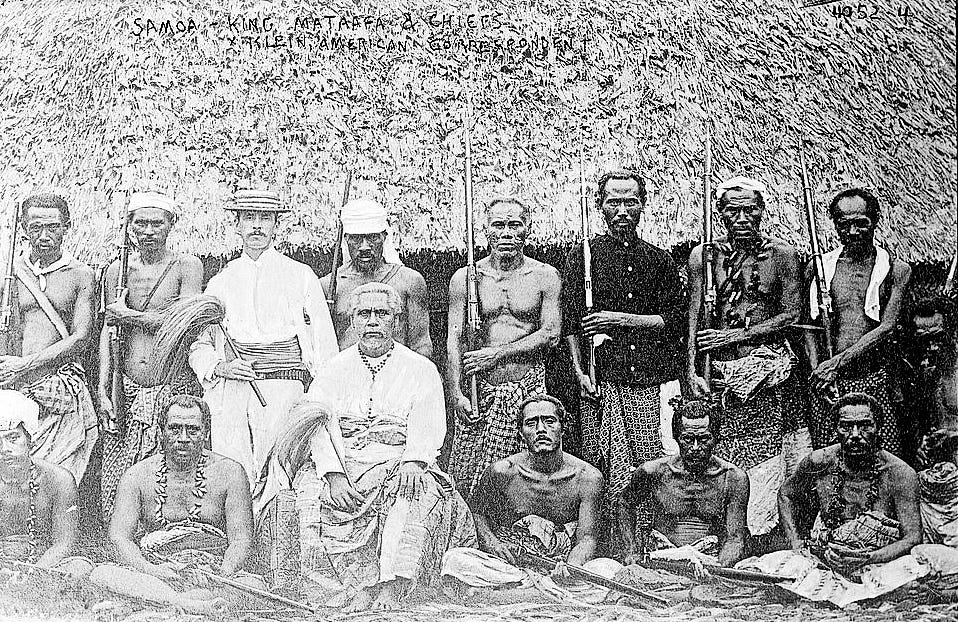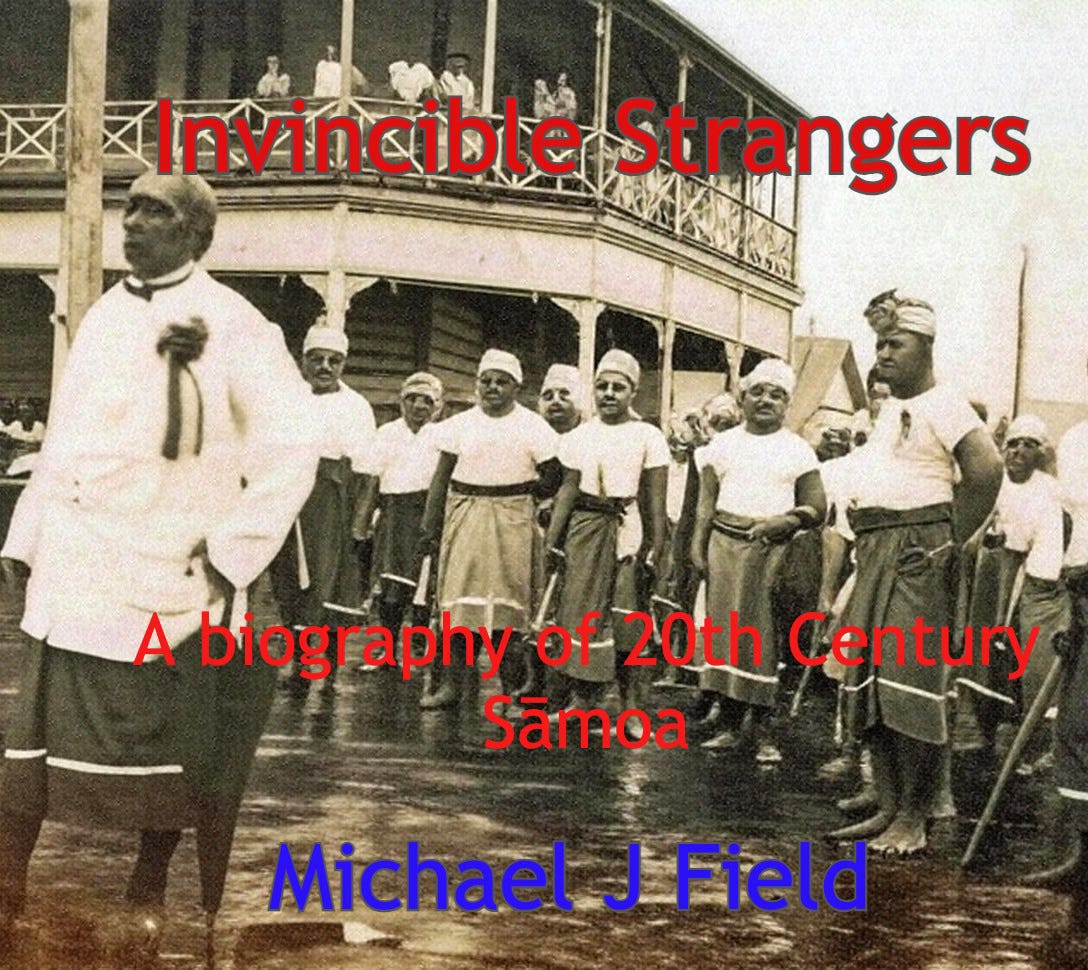Looking up Sāmoa on the map
Invincible Strangers 5 - Chapter 1.2
Looking up Sāmoa on the map
Mata’afa was prepared to fight.
A powerfully built and handsome man, his full title included chiefly names Tupua, Malietoa and To'oa. Like all matai titles it was linked to land and Mata’afa had pule (power) over much of Āpia and its neighbourhood. Just over a month after the attack on Apolima, before dawn on 18 December 1888, Olga landed 80 men on the eastern shore of Āpia harbour. Another 40 were sent east along the coast in small boats. Vailele, seven kilometres south east of Beach Road, was the objective; Mata’afa was thought to be there. A German, ‘Captain’ Kurt Hufnagel, who managed a large plantation, ordered his workers, indentured men from Deutsch-Neuguineas’ Neupommern (now Papua New Guinea’s New Britain), to support the Germans. Stevenson quoted a Mata’afa source on the attack: ‘It was the hour when the streak of dawn is seen, the hour known in the warfare of heathen times as the hour of the night attack.’ With the Moon down, Mata’afa’s men were bold and opened fire as the landing boat crossed the lagoon. Fifty bluejackets jumped overboard, and used the boat as a shield while they moved ashore. Sea water spoilt their ammunition. The Germans made it to Hufnagel’s house but with their back to the sea and besieged on three sides. The anti-German Samoa Times said Mata’afa had been avoiding a fight with the Germans, knowing how they would respond. But the Germans, it said, fired first, killing a young man, the son of a matai: ‘The chief got terribly excited, and was in the act of firing into the Germans when his people prevented him, and whilst struggling with them he himself was shot and dropped dead beside his son. This was more than Mata’afa’s people could bear.’ They fired a volley into the Germans, killing six. The Neupommern men fled. Mata’afa’s 1500 attacked the Germans. Wounded Germans were said to have been beheaded in the fighting. This was perceived to be more outrageous than Germany’s random shelling of women and children. Germans attacked with bayonets, managing finally to get to safety. In what had already become a signature German policy, Vailele and Letogo villages were put to the torch. Matāfagatele was again shelled.
In the First Battle of Vailele Sāmoan losses were unrecorded. The Germans lost 16 men with many more wounded. Stevenson wrote of it: ‘The blue-jackets numbered a hundred and forty all told,’ Stevenson said, ‘they were engaged separately and fought under the worst conditions, in the dark and among woods; their position in the house was scarce tenable; they lost in killed and wounded fifty-six,— forty per cent.; and their spirit to the end was above question.’ He regretted what so many should do at ‘so poor a quarrel, or lives castaway upon an enterprise so hopeless.’

The gunfire was heard in Āpia, prompting Harry Moors to ride out to the battlefield. At Matāfagatele he met a Manono matai, asking if there were any German dead; ‘I think there are about thirty of them knocked over,’ the matai told Moors. Were heads taken from the dead, Moors asked, and the matai said this was so.
Keep reading with a 7-day free trial
Subscribe to Michael Field's South Pacific Tides to keep reading this post and get 7 days of free access to the full post archives.


